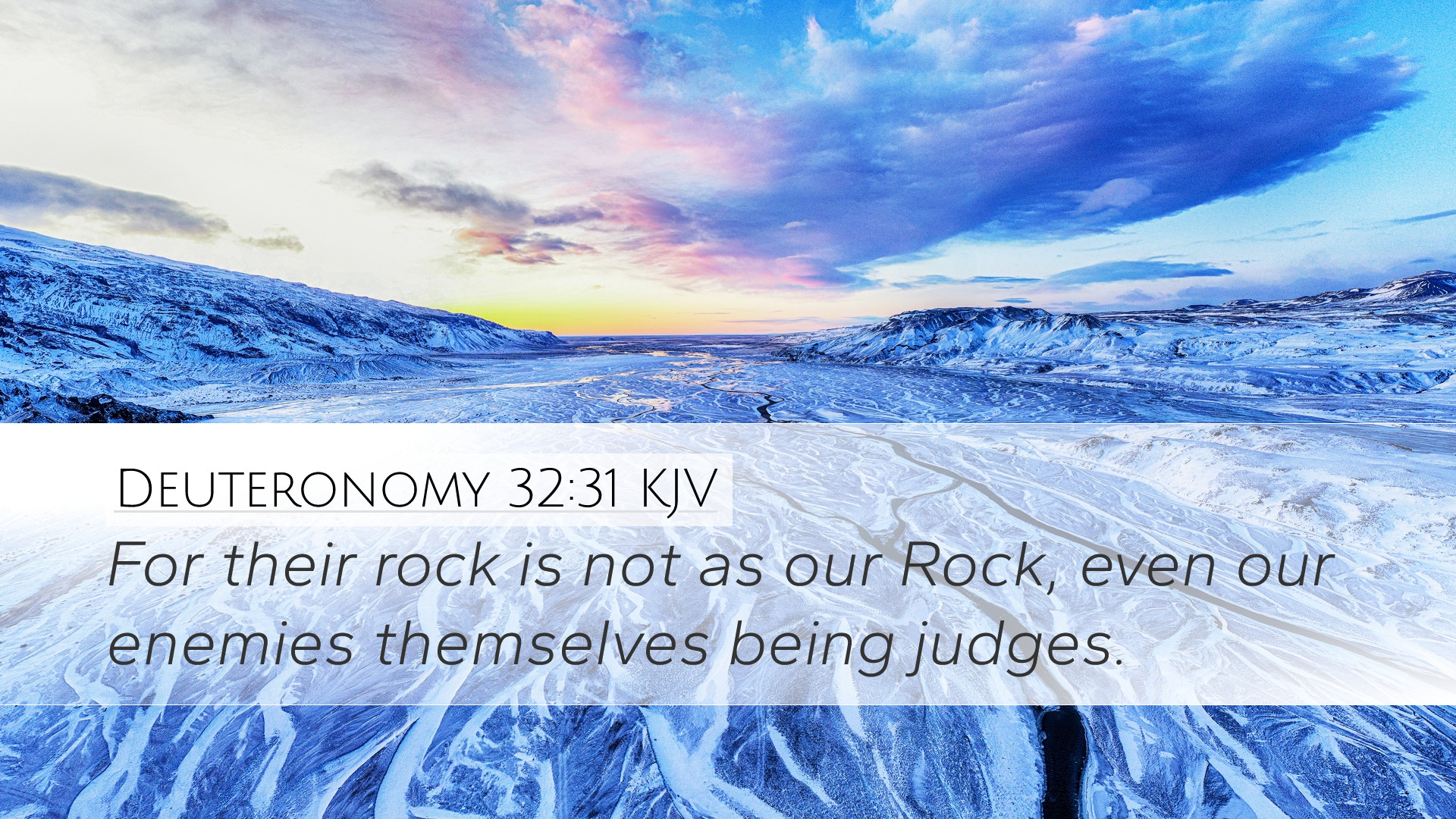Old Testament
Genesis Exodus Leviticus Numbers Deuteronomy Joshua Judges Ruth 1 Samuel 2 Samuel 1 Kings 2 Kings 1 Chronicles 2 Chronicles Ezra Nehemiah Esther Job Psalms Proverbs Ecclesiastes Song of Solomon Isaiah Jeremiah Lamentations Ezekiel Daniel Hosea Joel Amos Obadiah Jonah Micah Nahum Habakkuk Zephaniah Haggai Zechariah MalachiChapter
Deuteronomy 1 Deuteronomy 2 Deuteronomy 3 Deuteronomy 4 Deuteronomy 5 Deuteronomy 6 Deuteronomy 7 Deuteronomy 8 Deuteronomy 9 Deuteronomy 10 Deuteronomy 11 Deuteronomy 12 Deuteronomy 13 Deuteronomy 14 Deuteronomy 15 Deuteronomy 16 Deuteronomy 17 Deuteronomy 18 Deuteronomy 19 Deuteronomy 20 Deuteronomy 21 Deuteronomy 22 Deuteronomy 23 Deuteronomy 24 Deuteronomy 25 Deuteronomy 26 Deuteronomy 27 Deuteronomy 28 Deuteronomy 29 Deuteronomy 30 Deuteronomy 31 Deuteronomy 32 Deuteronomy 33 Deuteronomy 34Verse
Deuteronomy 32:1 Deuteronomy 32:2 Deuteronomy 32:3 Deuteronomy 32:4 Deuteronomy 32:5 Deuteronomy 32:6 Deuteronomy 32:7 Deuteronomy 32:8 Deuteronomy 32:9 Deuteronomy 32:10 Deuteronomy 32:11 Deuteronomy 32:12 Deuteronomy 32:13 Deuteronomy 32:14 Deuteronomy 32:15 Deuteronomy 32:16 Deuteronomy 32:17 Deuteronomy 32:18 Deuteronomy 32:19 Deuteronomy 32:20 Deuteronomy 32:21 Deuteronomy 32:22 Deuteronomy 32:23 Deuteronomy 32:24 Deuteronomy 32:25 Deuteronomy 32:26 Deuteronomy 32:27 Deuteronomy 32:28 Deuteronomy 32:29 Deuteronomy 32:30 Deuteronomy 32:31 Deuteronomy 32:32 Deuteronomy 32:33 Deuteronomy 32:34 Deuteronomy 32:35 Deuteronomy 32:36 Deuteronomy 32:37 Deuteronomy 32:38 Deuteronomy 32:39 Deuteronomy 32:40 Deuteronomy 32:41 Deuteronomy 32:42 Deuteronomy 32:43 Deuteronomy 32:44 Deuteronomy 32:45 Deuteronomy 32:46 Deuteronomy 32:47 Deuteronomy 32:48 Deuteronomy 32:49 Deuteronomy 32:50 Deuteronomy 32:51 Deuteronomy 32:52


Commentary on Deuteronomy 32:31
Verse Text: "For their rock is not as our Rock, even our enemies themselves being judges."
The verse Deuteronomy 32:31 stands as a poignant assertion regarding the superiority of the God of Israel over foreign gods. It encapsulates the heart of Moses' declaration in this section of the Song of Moses, where he articulates Israel's unique covenant relationship with the Almighty. This commentary aims to unpack the depths of this scripture utilizing insights from esteemed public domain commentaries, specifically those by Matthew Henry, Albert Barnes, and Adam Clarke.
1. The Superiority of Israel's Rock
Matthew Henry emphasizes the declaration that "their rock is not as our Rock." This statement serves as a contrast between the true God and the false deities that the surrounding nations worship. Here are some reflections:
2. The Witness of the Enemies
Albert Barnes reflects on the phrase "even our enemies themselves being judges." This component adds a significant layer of meaning as it acknowledges that even those opposed to Israel recognize God’s supremacy:
3. Implications for Modern Believers
Adam Clarke provides insights on the contemporary implications of this scripture for believers today. His reflections underscore several vital aspects:
4. Conclusion
Deuteronomy 32:31 stands as a profound reminder of the nature of God that transcends time and culture. As highlighted by Matthews Henry's emphasis on divine stability, Barnes's acknowledgment from adversaries, and Clarke’s implications for modern believers, this verse encapsulates the essence of theological truth that is relevant for pastors, students, theologians, and scholars alike. In a world where alternate 'gods' vie for allegiance, the faithful are called to remember that their Rock, the Lord, is unwavering and unmatched. Such insights can guide and encourage believers to fortify their faith in God's supremacy, allowing them to navigate both personal and communal challenges with assurance and hope.